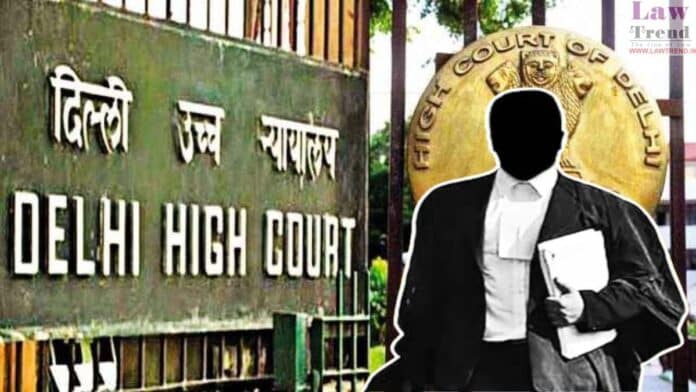The Delhi High Court has discharged a former Bar leader in a contempt case filed by a retired district court judge against him for allegedly interfering with the administration of justice after being convicted of assaulting her when she was a lawyer.
Chaos had erupted in a courtroom in Delhi’s Tis Hazari court on November 30, 2021, with lawyers chanting slogans and standing atop tables and chairs as they awaited the pronouncement of order on sentencing in the assault case.
Seeking initiation of contempt proceedings against lawyer Rajiv Khosla, the retired judicial officer had claimed that the trial court proceedings were “literally hijacked” and “obstructed” by Khosla and his supporters.

A bench headed by Justice Suresh Kumar Kait, in an order released on Thursday, said the petitioner did not produce any material to compel it to form an opinion that Khosla committed any criminal contempt.
The court said the CCTV footage of the incident showed that the courtroom was “fully packed” on the day of arguments on sentencing, quite possibly because the convict was an office bearer of the Delhi Bar Association as well as the Delhi High Court Bar Association, and the “voice of the alleged contemnor was not properly audible”.
The bench, also comprising Justice Manoj Jain, said the transcript of the footage too did not reflect utterances attributable to Khosla that could suggest contempt.
“There is nothing before us which may indicate that contemnor had scandalized or lowered the authority of any Court or interfered or tried to interfere with the due course of any judicial proceedings,” the court concluded.
“In view of above, we, hereby, discharge the respondent from these proceedings,” it said.
In the order, the court emphasised that even in situations like that in the present case, the presiding officer should not feel helpless as he can take up the matter through video conference or restrict access to the public.
“Keeping in mind the sensitivity of any given case, the Court can always direct that such matter would be taken up through video conferencing mode only so as to ensure that no untoward incident happens at the time of physical hearing.
“Moreover, even if the court chooses physical hearing, Section 327 Cr.P.C can be pressed into service which provides any such court with ample powers, directing the public generally, or any particular person, to not have access to the Court room,” it said.
The bench directed the registrar general of the high court to forward its order to all district courts so that wherever required, the presiding officer concerned either takes up the matter through video conference or restricts the access of the general public after recording the reasons in writing.
On October 29, 2021, a trial court had convicted Delhi High Court Bar Association’s (DHCBA) ex-President Rajiv Khosla in an assault case for offences punishable under Sections 323 (voluntarily causing hurt) and 506 (criminal intimidation) of the India Penal Code (IPC).
Also Read
Complainant Sujata Kohli had alleged that Khosla grabbed her by hair and dragged her in August 1994.
Kohli, who was a lawyer at Tis Hazari court at the time of the incident, went on to become a judge in the Delhi judiciary and retired as a District and Sessions Judge in 2020.
In her petition before the high court, she alleged that after his conviction, Khosla made an “appeal to the Bar bodies to join him” and they sided with him while deciding to go on a strike. She added that Khosla’s conduct was also objectionable inside the courtroom.
After the argument and chanting of slogans, the trial court had directed Khosla to pay a total compensation of Rs 40,000 to the state and the victim.







